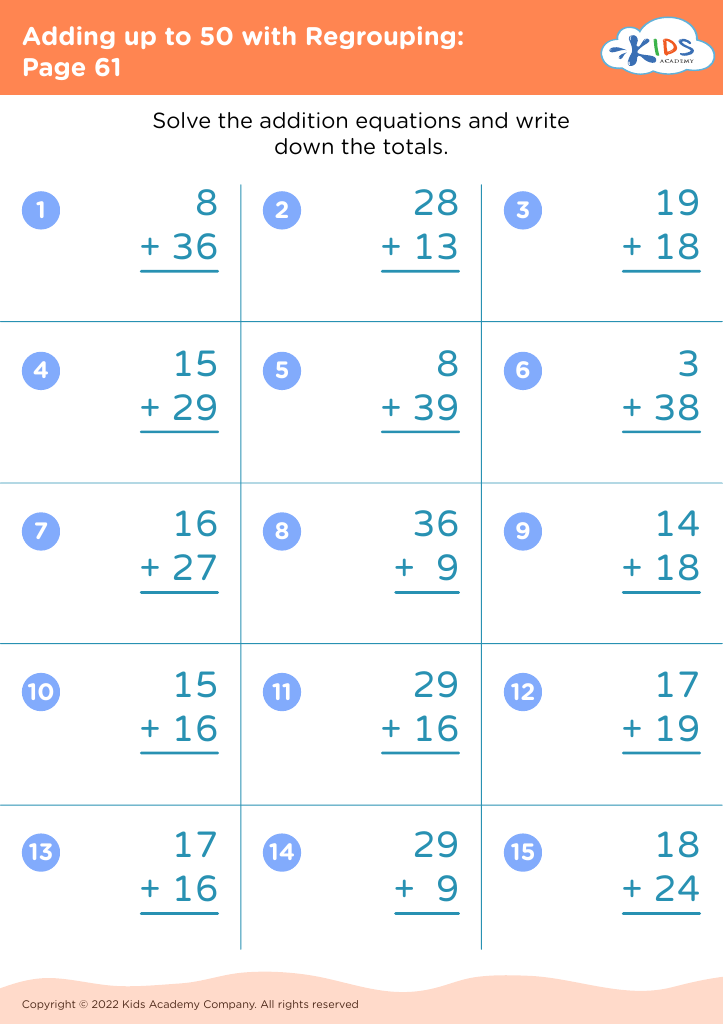Practice inference skills Addition Worksheets for Ages 3-7
3 filtered results
-
From - To
Enhance young learners' math abilities with our "Practice Inference Skills Addition Worksheets for Ages 3-7". Designed to boost both numerical and critical thinking skills, these engaging worksheets encourage children to make educated guesses, recognize patterns, and solve addition problems. Ideal for preschool through early elementary, each worksheet is crafted to make learning fun and interactive. Kids enjoy vibrant illustrations and relatable scenarios that foster confidence as they infer and calculate answers. Perfect for classroom or at-home practice, our addition worksheets lay a strong mathematical foundation while developing crucial inference skills.
Parents and teachers should prioritize practicing inference skills addition for children aged 3-7 because it lays a crucial foundation for critical thinking and mathematical understanding. Inference skills enable children to draw conclusions based on given information, promoting logical reasoning and problem-solving abilities. These skills are essential for academic success and everyday decision-making.
Addition, a fundamental math operation, reinforces numeracy and promotes cognitive development. By integrating inference skills with addition, children not only learn to add numbers but also understand the relationships between them—fostering deeper comprehension. This dual focus encourages mental arithmetic, enhances memory, and builds confidence in handling more complex mathematical concepts in the future.
During early childhood, neural connections in the brain are highly malleable. Engaging in inference-based addition exercises can stimulate intellectual growth and shape effective learning habits. Teachers and parents can create a stimulating, supportive environment that makes math fun and accessible, utilizing games and practical activities to instill these skills naturally.
Furthermore, early competence in these areas can boost self-esteem and foster a positive attitude toward learning, essential for long-term academic enthusiasm and perseverance. Thus, investing effort in practicing inference skills addition during early childhood is key to nurturing well-rounded, proficient problem-solvers.



















